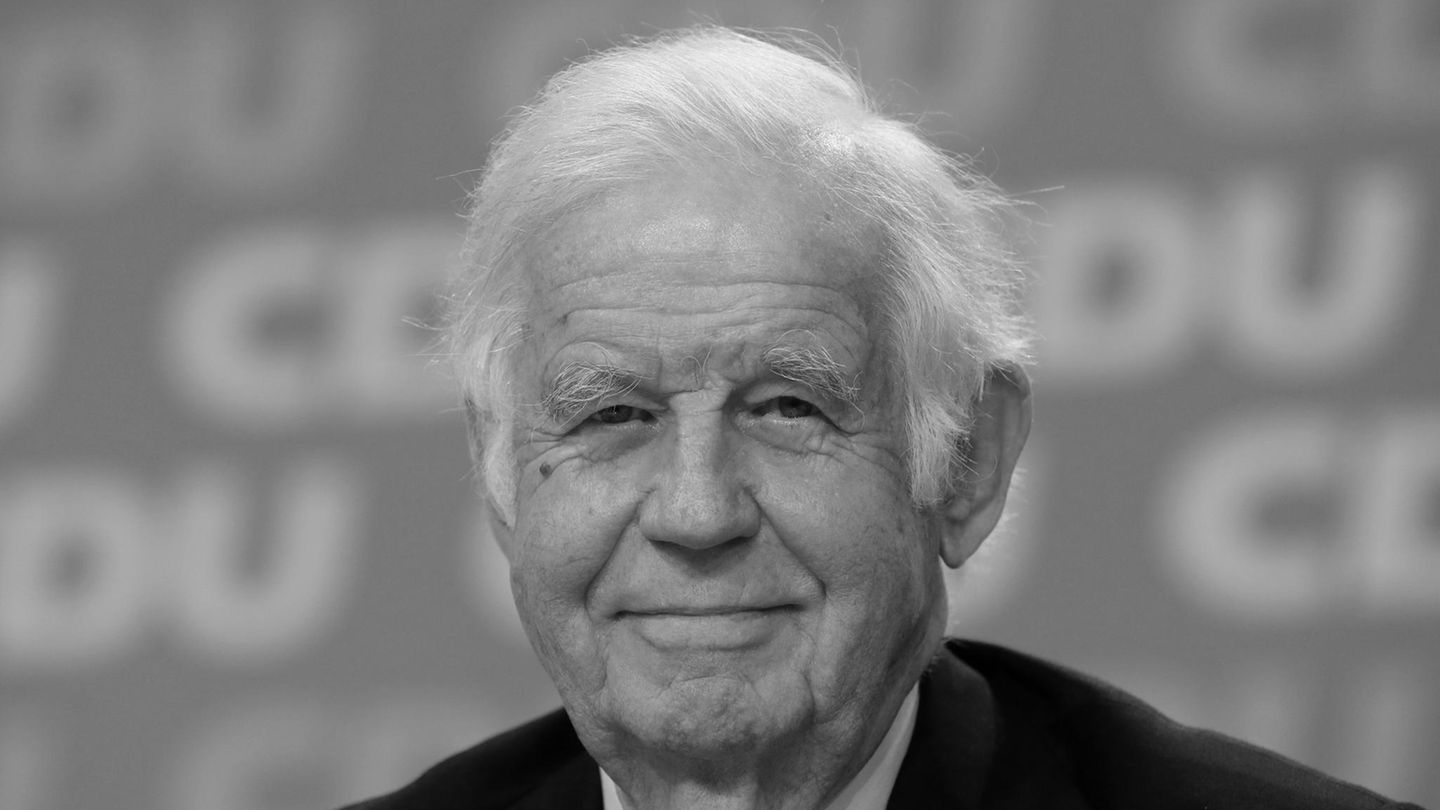He was argumentative, anything but squeamish – and was adored: Kurt Biedenkopf, former Prime Minister of Saxony, is a symbol of German unity. Now the CDU politician has died.
He was “King Kurt” – Adored by some, criticized by others as absolutist: Kurt Biedenkopf, born in Ludwigshafen, West Germany, reached the highest heights of an eventful political career in Dresden, Saxony, after reunification. On Thursday evening, Biedenkopf died at the age of 91 – as “great Saxons” His successor Michael Kretschmer (CDU) paid tribute to him.
Biedenkopf made his last major public appearance in April, when the University of Leipzig awarded the CDU politician, who is highly recognized as a professor and promoter of science, with an honorary doctorate. Even then, Biedenkopf saw but weakened, he came to the hospital in July – but now he died at home.
No, Kurt Biedenkopf wasn’t squeamish
Biedenkopf remained active to the end – in his law firm, in science, even a little in politics. In the most recent state election, the former prime minister was involved in the state election campaign and, despite the CDU’s bitter losses, only found words of praise for Prime Minister Kretschmer. Biedenkopf, who as head of government in the Free State had won an absolute majority three times for his party, did not treat all of his successors so squeamishly.
Biedenkopf spoke to both his direct successor in office, Georg Milbradt, and the former Prime Minister Stanislaw Tillich (both CDU) quasi the aptitude to be a top politician. Nevertheless, he enjoyed great popularity even with many Saxons until his death – 19 years after his resignation as head of government.
This was based on the one hand on his fatherly strict manner, and on the other hand on the fact that, despite his western origin, he distinguished himself as one of the most energetic advocates of the interests of East Germany and Saxony.
However, Saxony’s once impeccable reputation has suffered in recent years mainly due to numerous right-wing extremist attacks, acts of violence and attacks against refugees. Biedenkopf’s controversial saying that the Saxons are “immune” against right-wing extremism, has since been thoroughly refuted.
An uncomfortable thinker fights back
Biedenkopf’s political career, born on January 28, 1930, seemed to have ended in the 1980s after the sharp-tongued critic fell out of favor as CDU general secretary and later federal deputy with the then CDU boss Helmut Kohl. The relationship between the two CDU sizes was characterized by a constant rivalry.
In addition, in 1980 in the state elections in North Rhine-Westphalia, as a CDU challenger against his opponent Johannes Rau from the SPD, he experienced a severe election failure. At the end of the 1980s, Biedenkopf, who had also been a member of the Bundestag for several years, finally withdrew from state politics in North Rhine-Westphalia.
But the uncomfortable thinker, who initially did a steep academic apprenticeship and was the youngest university rector in the Federal Republic of Germany at the Ruhr University in Bochum at the end of the 1960s, received new honors in the east. The Saxony CDU made him the top candidate for the state elections in 1990 and celebrated Biedenkopf as a spectacular one “Westimport”.
The fall of “King Kurt”
In the federal CDU, the political scientist and lawyer remained an inconvenient and caused a sensation with his own positions on pension policy, for example. It should have been a particular satisfaction for Biedenkopf that at the beginning of 2000 he was briefly traded as the successor to the then federal chairman Wolfgang Schäuble in the CDU donation affair.
But his center of power was clearly in Saxony. With his often high-handed government style and the sometimes less tactful dealings with fellow party members, which gives him the nickname “King Kurt” brought in, Biedenkopf also met with increasing criticism from within its own ranks.
After allegations of having paid too little rent for the official apartment for years and having mixed private and official matters in other cases, Biedenkopf resigned as Prime Minister in April 2002.
The loud criticism at the time faded away for a long time. For many, the condolences for his second wife Ingrid, for children and grandchildren, were linked to the fact that one of the most important personalities in Saxony had died.
David William is a talented author who has made a name for himself in the world of writing. He is a professional author who writes on a wide range of topics, from general interest to opinion news. David is currently working as a writer at 24 hours worlds where he brings his unique perspective and in-depth research to his articles, making them both informative and engaging.




